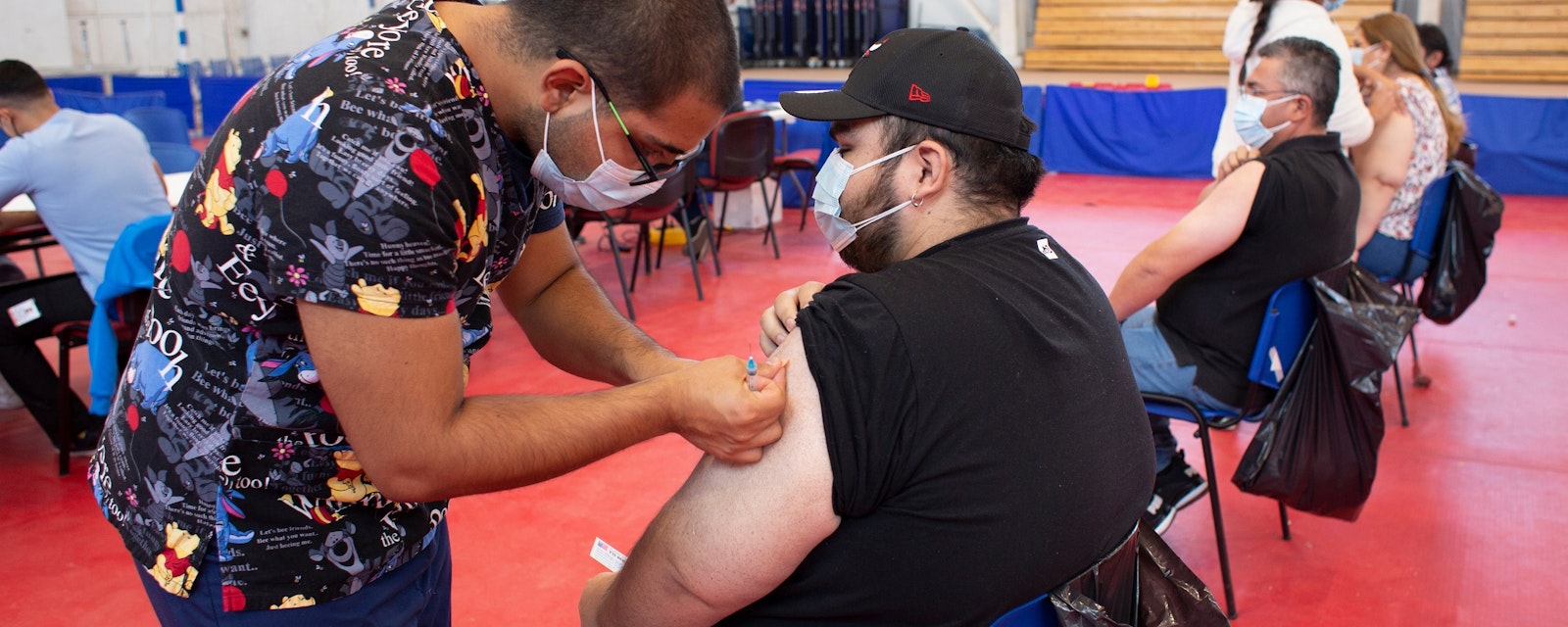Our Covid-19 vaccination table includes updated information on the immunization strategies selected EMs are pursuing and the challenges they face. Below are some of the latest developments. Please do not hesitate to contact us if you want to discuss any of the countries mentioned in more detail.
Click on 'View PDF' to see the table.
Highlights
Vaccine Rollout
- In Chile, the Sinovac vaccine has been authorized for children as young as six (with parental consent); health authorities plan to start vaccinating this age cohort from late-September with inoculations taking place at schools.
- Colombia expects its first shipment of 1.2mn Moderna doses to arrive by the end of this week, with 4mn Moderna doses expected by the end of this month.
- Having fully vaccinated 50-58% of their populations, further vaccination progress in the Czech Republic, Hungary and Poland is extremely slow. However, rising infections in the region could at least partly reinvigorate their vaccination campaigns.
- Mexico’s government wants everyone over the age of 18 to have received at least one dose of a coronavirus vaccine by 31 October; the use of vaccines for the 16-18 age group could come under consideration after October.
- In Poland, around one-third of eligible school pupils in the 12-18 age group have been vaccinated since June.
- South Africa’s health products regulator SAHPRA has granted emergency approval for use of the Pfizer vaccine in children aged 12+, though for now, the vaccine rollout remains open to adults aged 18+.
- Thailand’s official vaccine regimen is now Sinovac for the first shot and AstraZeneca for the second – to reduce the time between jabs to three weeks and extend supplies.
- Nigeria’s vaccination campaign has recommenced following the arrival of new vaccine shipments in late August and early September.
Vaccine Procurement
- Lack of access to vaccine supplies continues to be a major barrier preventing poorer countries from vaccinating their citizens. Last week, COVAX, a global program to ensure global vaccine access, announced that its 2021 forecast for available doses would be reduced by 25%.
- Argentina has received its first delivery of the Pfizer vaccine. Close to 20mn Pfizer doses are expected before the end of 2021; some of these will be administered to people who have been waiting for a second dose of the Sputnik V vaccine.
- Hungary started construction of a HUF 55bn (USD 185mn) vaccine production facility in Debrecen, which is expected to be launched by the end of 2022. It will have capacity to manufacture up to 20mn vaccine doses per annum, including Sinopharm’s Covid-19 vaccines.
- Kenya is establishing a fill-and-finish facility for Covid-19 vaccines ahead of setting up a full-scale manufacturing plant to guarantee supply. Local production is expected to start during the first quarter of 2022.
- Peru’s President Pedro Castillo last week announced that an agreement had been reached with the Russian Direct Investment Fund (RDIF) to set up a vaccine production facility in Peru; health authorities later clarified that discussions with the RDIF were underway and that any facility was unlikely to be up-and-running before 2023 at the earliest.
- Taiwan will send a senior foreign ministry official to lead an investment delegation to Slovakia, Czech Republic, and Lithuania to boost commercial ties with those three countries, which have collectively donated 60,000 vaccine doses to Taiwan.
Infections and New Variants
- In Brazil, the Delta variant already represents 63% of the Covid-19 cases, and almost all of the remaining samples are from the Gamma variant (P1). Even with the progress of the variants, the number of cases continues to drop.
- Russia’s infection and death levels from Covid-19 are likely to remain high due to relatively low vaccination levels and few restrictions in place. Colder weather and reopened schools could aggravate the epidemiological situation in the coming weeks.
- On 13 September, South Africa’s lockdown restrictions were eased to adjusted “Level 2” regulations thanks to a sustained fall in Covid-19 infections.
Vaccine Diplomacy
- China will have donated 100mn vaccine doses to developing countries by the end of 2021, President Xi Jinping told a virtual summit of Brazil, Russia, India, and China. Through early September, China had already sold 1.2bn doses globally and donated a further 54mn, compared to US global donations of 128mn doses.
- Kenya is receiving donations of Pfizer, Moderna and AZ vaccines, including donations from the US of 1.76mn Moderna vaccines (already delivered) and 1.7mn Pfizer doses (expected later this month).
- Mexico has delivered 150,000 AstraZeneca (AZ) doses each to Honduras and Bolivia, and plans to donate vaccines to Jamaica, Paraguay, Belize, and Nicaragua, as part of its own sub-regional vaccine diplomacy efforts.
- Saudi Arabia is donating USD 5.3mn for the Organization of Islamic Cooperation’s initiative to supply vaccines to the 22 member countries of the organization. Saudi has donated more than USD 500mn to global vaccination campaigns to date, and USD 150mn to the GAVI alliance specifically.
The views and opinions in these articles are solely of the authors and do not necessarily reflect those of Teneo. They are offered to stimulate thought and discussion and not as legal, financial, accounting, tax or other professional advice or counsel.





